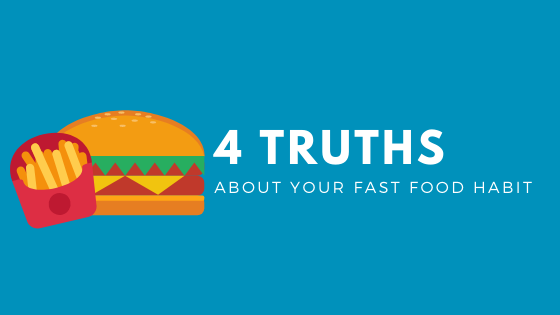
After a long day at work and an evening balancing children’s activities and homework, many parents find themselves staring blankly into a refrigerator with no idea of what to cook for supper. On any given day, we can find multiple posts requesting new recipe ideas, preferably ones that are easy to prepare. It’s tempting to throw our hands in the air and dial the nearest pizza delivery service. With UberEats and Tupelo-to-Go, our food delivery options are no longer limited to pizza. But with every restaurant meal comes risks to our health. Here’s the real truth about your fast food habit.
Truth #1:
Poor nutrition from fast food meals has been discussed for more than 40 years. A report from 1978 discusses the high sugar content of fast food meals and its effect on obesity. The report also mentions the link between obesity and other health concerns such as diabetes, heart disease, and high blood pressure.
“Plant-based diets” may feel like a new fad, but in reality researchers, doctors, and politicians have been encouraging Americans to eat more leafy greens and fiber-rich foods for decades.
Truth #2
Sugar isn’t the only culprit in restaurant food. Almost every meal purchased outside the home includes more than your recommended daily allowance (RDA) of sodium. We know you were trying to eat healthy with a turkey sub instead of a burger, but if you added cheese, pickles, and mayo it could equal almost half your daily allowance of sodium.
Too much sodium causes water retention and can raise blood pressure, which may result in damage to your blood vessels, heart, and kidneys.
Truth #3
Cooking at home increases quality time with your family. In the days before fast-food joints on every corner and deliver services to our sofa, we used to cook dinner often with a spouse or children helping. In addition to an improvement in nutritional value, foods at home increase time with family. Learning a new recipe together or teaching a child to chop vegetables can create unique bonding opportunities.
Truth #4
People who cook at home consume fewer calories. No brainer, right? But the reasons behind why they consume fewer calories may not be what you think. A study at Johns Hopkins found people who cook at home more frequently also consume fewer calories when they do eat out. They’re also more likely to eat smaller portions at home, and they don’t have the readily available dessert menu taunting them.
Time for a Reminder
Most of us already knew this information, but as more and more people eat out, especially at fast-food restaurants, we thought it was time for a refresher. According to a study published The Journal of Nutrition last month revealed 20% of calories consumed by Americans come from restaurants. That’s a lot of sugar and sodium without a lot of the vitamins and minerals our bodies need.
Cooking at home takes time, which isn’t always readily available. For those of us who struggle to fit cooking into our schedule, a meal plan helps make it easier. Prepping foods on the weekend, utilizing a crockpot or pressure cooker, and cooking enough for leftovers all make cooking at home easier.
We can’t avoid eating out altogether. When you know you’ll be eating out check the menus ahead of time for nutrition information and choose wisely. Also, order your meal first. You’ll be less likely to be swayed by other diners’ poor choices if you’ve already ordered your meal.
Need help planning healthy meals? Our registered dietician, Erica Witcher, is available for appointments. So also runs our Witcher Weightloss Warriors, a weekly group that teaches how to lose weight the healthy way and includes cooking demos, meal plans, snack ideas, and exercise tips.






Speak Your Mind